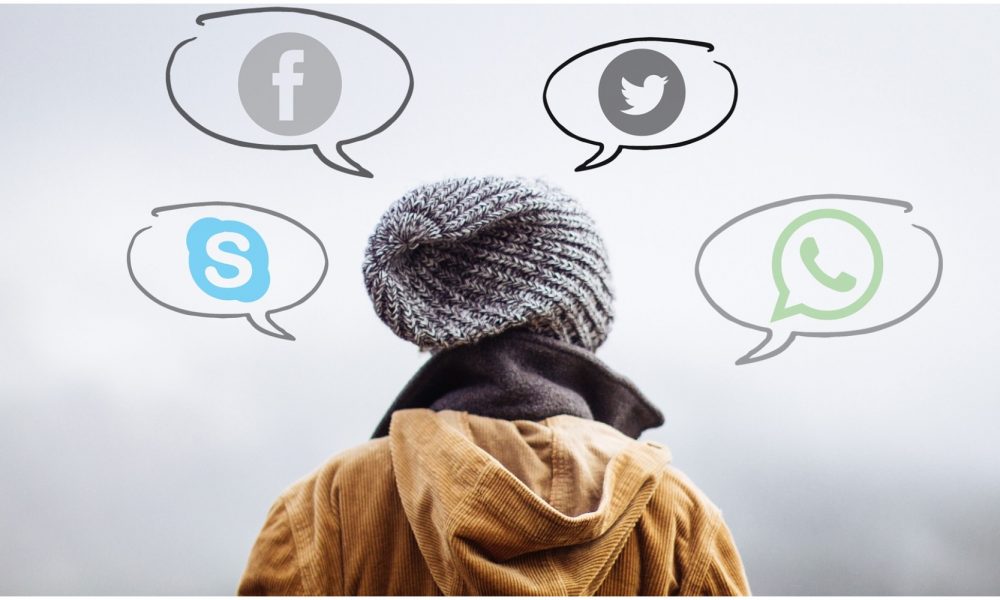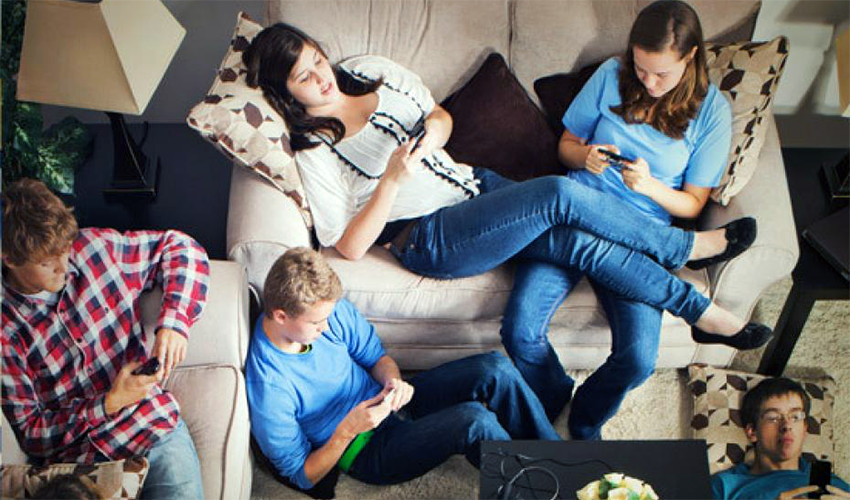
5 Ways Social Media Affects Our Mental Health

No one can deny the fact that social media affects our health. Be it physically, psychologically, or a dangerous combination of the two, our addiction to our mobile screens can have some pretty dire consequences to our health if left unchecked. The health effects of social media range from funny, small-potatoes stuff like FOMO to much more frightening possibilities like altered brain structures.
Obviously, social media and technology aren’t all bad. They can bring connectivity, ease, information, and excitement into our lives. But, maybe we should also consider putting our devices down a little bit more often.
So if you’ve got a little bit of a screen addiction, read on to learn more about the health risks associated with the social media overuse.
Restructuring Your Brain
According to Psychology Today, there are now multiple studies that demonstrate brain atrophy in grey matter in individuals with Internet/gaming addictions. What does this mean? Well, the grey matter areas of the brain are the parts where “processing” occurs. They are the sites of the brain where planning, prioritizing, organizing, and impulse control happen – basically, they’re the parts of the brain that enable us to get things done. If these areas atrophy, they shrink and become impaired, which is kind of a big deal.
Screen addiction also contributes to restructured white matter, and white matter is the brain stuff that links our brain hemispheres and helps our brain communicate with our body. And, the thing is, recent research also suggests that it isn’t just those who are addicted to screens that suffer from brain restructuring. Developing children’s brains are particularly susceptible to these potential problems.

Socialization has become a challenge to those social media addicts.
Glamorizing Drug and Alcohol Use
A study that explored the relationship between teenagers, social media, and drug use found that 70% of teenagers ages 12 to 17 use social media, and those who interact with it on a daily basis are five times more likely to use tobacco, three times more likely to use alcohol, and twice as likely to use marijuana.
In addition, 40% admitted they had been exposed to pictures of people under the influence via social media, suggesting a correlation between the two factors. Although a correlation is all it is, it makes sense that social media would amp up the amount of peer pressure to which teenagers are exposed.
Affecting Your Metabolism
A team of researchers at Northwestern University recently found that the bright lights emitted from our smart devices (along with messing up our sleep) can also slow down our metabolisms. Essentially, light affects our cortisol levels, and our cortisol levels affect our insulin production. The research team found that participants who were exposed to more light in the morning were more able to maintain a lesser body weight than those who received most of their light in the afternoon and evening.
Here’s the kicker: the evening light group were more likely to be receiving their light as “blue light” from a device. This later-light intake can be linked to higher sugar levels and even Type-2 diabetes. It’s better to turn the screens off at night, refrain from screen-time during meals, and get the majority of your light from natural light in the morning hours.
Alleviating Anxiety and Stress Levels
Social media creates and contributes to our anxiety in two major ways: it causes us to compare our lives to others, and it is involved in the fear of missing out (FOMO, as the kids call it). Even though we all know in theory that most people carefully curate the most idealized versions of themselves and their lives for their social media personas, it’s still really difficult to not compare our own lives to theirs.
These feelings of envy and inadequacy associated with viewing other people’s lives through the lens of social media, can contribute to feelings of low self-esteem, anxiety, personal failure, and it can even create obsessive-compulsive thought patterns and behaviors.
Exposing To Productivity Drain and Risks

Your sense of concentration and focus is affected by your dependence to internet.
You have to admit it; while social media might help us connect more easily, it also diverts our attention and hampers productivity. The brain has difficulty focusing on more than one task at a time, which means if you’re working as you watch YouTube videos you’re really putting your work quality and accuracy at risk, draining your overall productivity.
Distracting You From Real Life
Social media focuses on rather trivial things—such as what your buddy ate last night for dinner or your sister’s cat in a dress. Sure, it’s amusing stuff, but it’s not life-changing. Few are the true momentous events, like the engagements, births, and graduations that social media shares among “friends”. Because of this, it can be argued that the time you spend on social media distracts you from being present in your own real life.
More in Mental Health
-
`
5 Reasons Why Dad’s Side of the Family Misses Out
Family bonds are intricate and multifaceted, often creating a unique tapestry of connections. However, many people notice a peculiar trend: stronger...
July 12, 2024 -
`
A Quick Guide on How to Get Short-Term Disability Approved for Anxiety and Depression
Living with anxiety or depression poses unique challenges, particularly in the workplace, where stress can exacerbate symptoms. For many, short-term disability...
July 5, 2024 -
`
Why Do People Feel Sleepy After Eating?
Is feeling sleepy after eating a sign of diabetes? Well, not directly. There are many reasons why you feel drowsy after...
June 20, 2024 -
`
What Is High-Functioning Depression? Symptoms and Treatment
High-functioning depression may not be a term you hear every day, but it’s a very real and challenging experience for many....
June 13, 2024 -
`
Kelly Clarkson’s Weight Loss Ozempic Journey – Debunking the Rumors
In a refreshing moment of transparency, Kelly Clarkson, the beloved singer and talk show host, sheds light on her remarkable weight...
June 3, 2024 -
`
What Is the Best Milk for Gut Health and Why?
In recent years, the milk section at the grocery store has expanded far beyond the traditional options. While cow’s milk has...
May 30, 2024 -
`
Do Dental Implants Hurt? Here’s All You Need to Know
When you hear “dental implants,” you might wince at the thought of pain. But do dental implants hurt as much as...
May 24, 2024 -
`
5 Key Differences Between A Psych Ward & A Mental Hospital
Curious about the differences between a psych ward and a mental hospital? You are not alone. With the mental health conversation...
May 16, 2024 -
`
It’s Official! “Selling Sunset’s” Christine Quinn & Husband Christian Dumontet Are Parting Ways
Have you ever found yourself unexpectedly engrossed in the personal lives of celebrities, especially when their stories take dramatic turns? Well,...
May 9, 2024










You must be logged in to post a comment Login